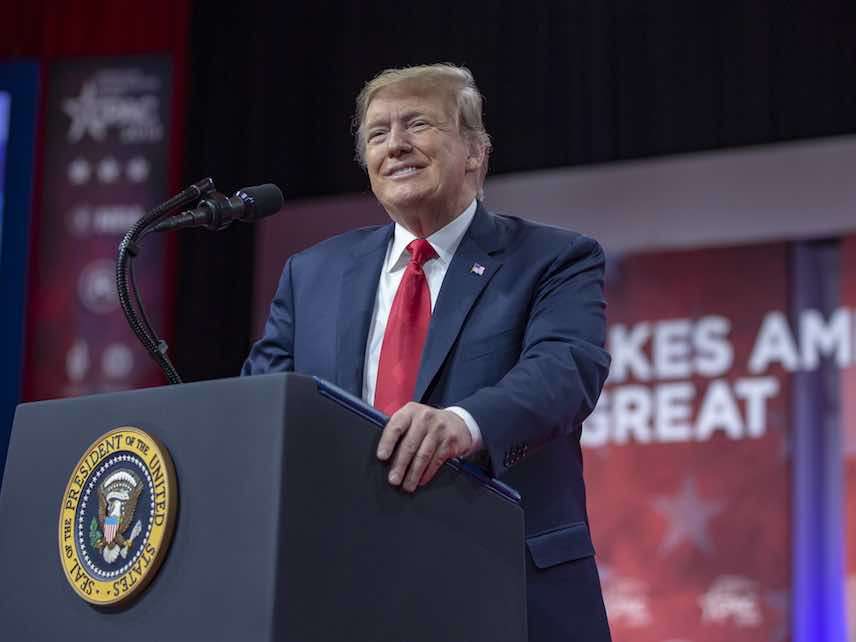Trump Vows That an Executive Order on Campus Free Speech Is Coming 'Very Soon'
An official tells Reason that a draft of the EO targets federal grants to universities and colleges.

On Saturday, President Trump promised CPAC 2019 attendees that he would soon sign an executive order to force universities and colleges to do a better job protecting the free speech rights of students.
"Today I am proud to announce that I will be very soon signing an executive order requiring colleges and universities to support free speech if they want federal research dollars," said Trump.
The White House declined to answer The New York Times' questions about the matter. But an official with knowledge of the executive order confirmed to Reason that a draft exists. Indeed, the plan is to penalize universities that do not protect free speech by taking away their federal grants.
"I will be signing an executive order requiring colleges and universities to support free speech if they want federal research dollars" @realDonaldTrump #CPAC2019 #WhatMakesAmericaGreat pic.twitter.com/hyeNZ3jI6F
— CPAC 2019 (@CPAC) March 2, 2019
To justify the executive order, Trump referenced an incident involving Hayden Williams, a young conservative activist who was punched in the face at the University of California, Berkeley, while helping with recruitment for the conservative advocacy group Turning Point USA. The police arrested a suspect on Friday. Neither Williams nor his presumed assailant are Berkeley students.
Whether free speech is currently in crisis on college campuses is a hotly debated issue. There are plenty of examples of students at a number of campuses enduring free speech violations—often at the hands of other students or college administrators—over the years, though evidence of a systemic or worsening epidemic is not as compelling.
To the extent there is a college free speech problem, much of it is cultural. As I explain in my forthcoming book, Panic Attack: Young Radicals in the Age of Trump (pre-order here), there are some far-left activist students who view speech with which they disagree as a form of violence, and they insist on shutting down controversial speakers on self-defense grounds. It is this tiny illiberal minority making life difficult: When they threaten violence against conservative speakers, they force university administrations to spend more money on security—costs that are sometimes passed along to other students.
It's not obvious that a presidential order would really address the cultural dimensions of the campus free speech issue. It might, however, worsen a very different problem: executive overreach. Congress, after all, is tasked with funding higher education, not the president.
The education system must do more to uphold the First Amendment, and to encourage students to cherish the principles of a free society. But a top-down, unilateral imposition on colleges and universities does not strike me as the best idea.

Show Comments (101)